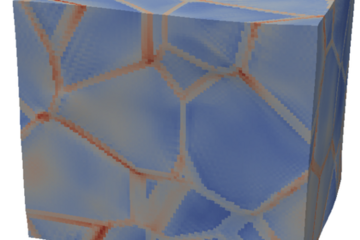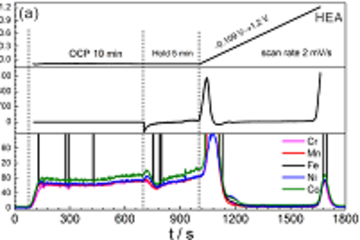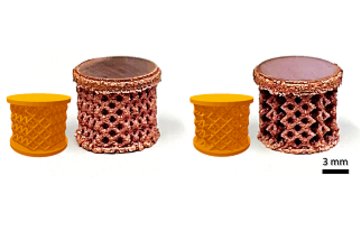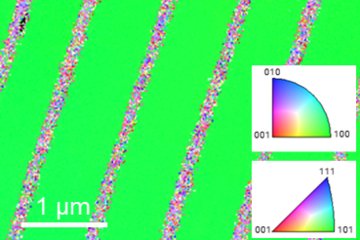All genres
301.
Talk
First-principles thermodynamics of paramagnetic fcc iron. DPG Frühjahrstagung 2013, Regensburg, Germany (2013)
302.
Talk
First-principles calculations of the key atomistic parameters related to hydrogen embrittlement in FeMn. DPG Frühjahrstagung 2013, Regensburg, Germany (2013)
303.
Talk
Ab initio study of kappa-carbides as precipitates in austenitic Fe matrix. DPG Frühjahrstagung 2013, Regensburg, Germany (2013)
304.
Talk
Improving the magneto-caloric effect in layered alloys: An ab-initio investigation. DPG Frühjahrstagung 2013, Regensburg, Germany (2013)
305.
Talk
Ab initio simulations of point defects put to the melting temperature. DPG-Frühjahrstagung 2013, Regensburg, Germany (2013)
306.
Talk
Ab initio finite temperature description of α Ti including anharmonic contributions. DPG-Frühjahrstagung 2013, Regensburg, Germany (2013)
307.
Talk
First-Principles Thermodynamics of Paramagnetic Gama Fe. TMS Annual Meeting, San Antonio, TX, USA (2013)
308.
Talk
Bulk Combinatorial Design of nanostructured steels: From composition to mechanisms. DPG Spring Meeting 2013, Regensburg, Germany (2013)
309.
Talk
Impact of Local Magnetism on Planar Defects in Pure Iron. SFB-761 Annual Meeting 2013, Herdecke, Germany (2013)
310.
Talk
Impact of Magnetism on Thermodynamic Properties of Iron. International Symposium “Frontiers In Electronic Structure Theory And Multi Scale Modeling” (FEST-VEK), Moscow, Russia (2013)
311.
Talk
What can we learn from theory about ferroic cooling? SPP1599 Convention, Schney, Germany (2013)
312.
Talk
Adaptive behavior in the Fe–C system. ICAMS Advanced Discussion, Bochum, Germany (2013)
313.
Talk
Ab initio point defects up to melting: Deviations from Arrhenius-like behavior. MRS, Fall meeting, Boston, MA, USA (2012)
314.
Talk
The influence of magnetic excitations on the phase stability of metals and steels. Seminar Talk at Institute for Pure and Applied Math, UCLA, University of California, Los Angeles, CA, USA (2012)
315.
Talk
Thermodynamics of PM Fcc Iron - First steps and preliminary results. 3rd Scientific Retreat, ICAMS, Münster, Germany (2012)
316.
Talk
Consequences of H-Vacancy Interactions: An Ab Initio Insight. International Hydrogen Conference, Jackson Lake Lodge, Moran, WY, USA (2012)
317.
Talk
SAPIENS thermophysical database for pure elements: DFT and experiments. 18th Symposium on Thermophysical Properties, Boulder, CO, USA (2012)
318.
Talk
Advancing ab initio methods to finite temperatures: The opening of new routes in materials design. Seminar Talk at Institute on Quantum Materials Science, Yekaterinburg, Russia (2012)
319.
Talk
Accelerated self-diffusion in fcc metals due to H induced superabundant vacancies. DSL 2012 Conference, Istanbul, Turkey (2012)
320.
Talk
H adsorption and absorption on/in carbides. HYDRAMICROS Workshop, Duisburg, Germany (2012)











